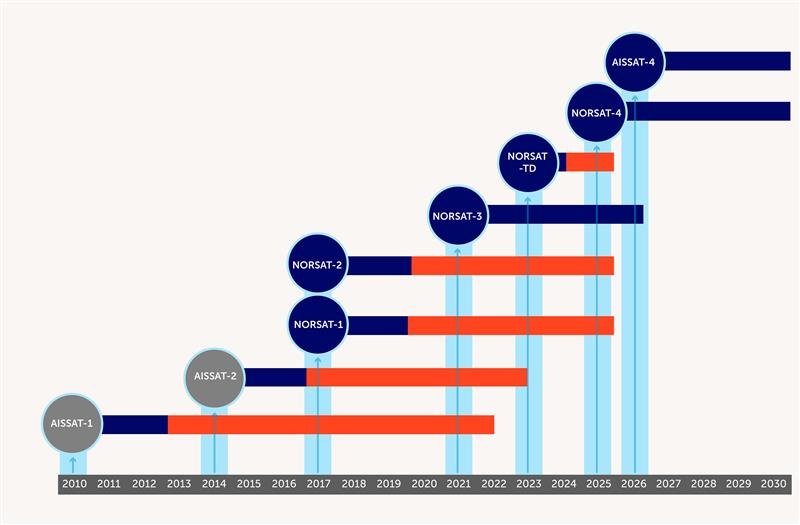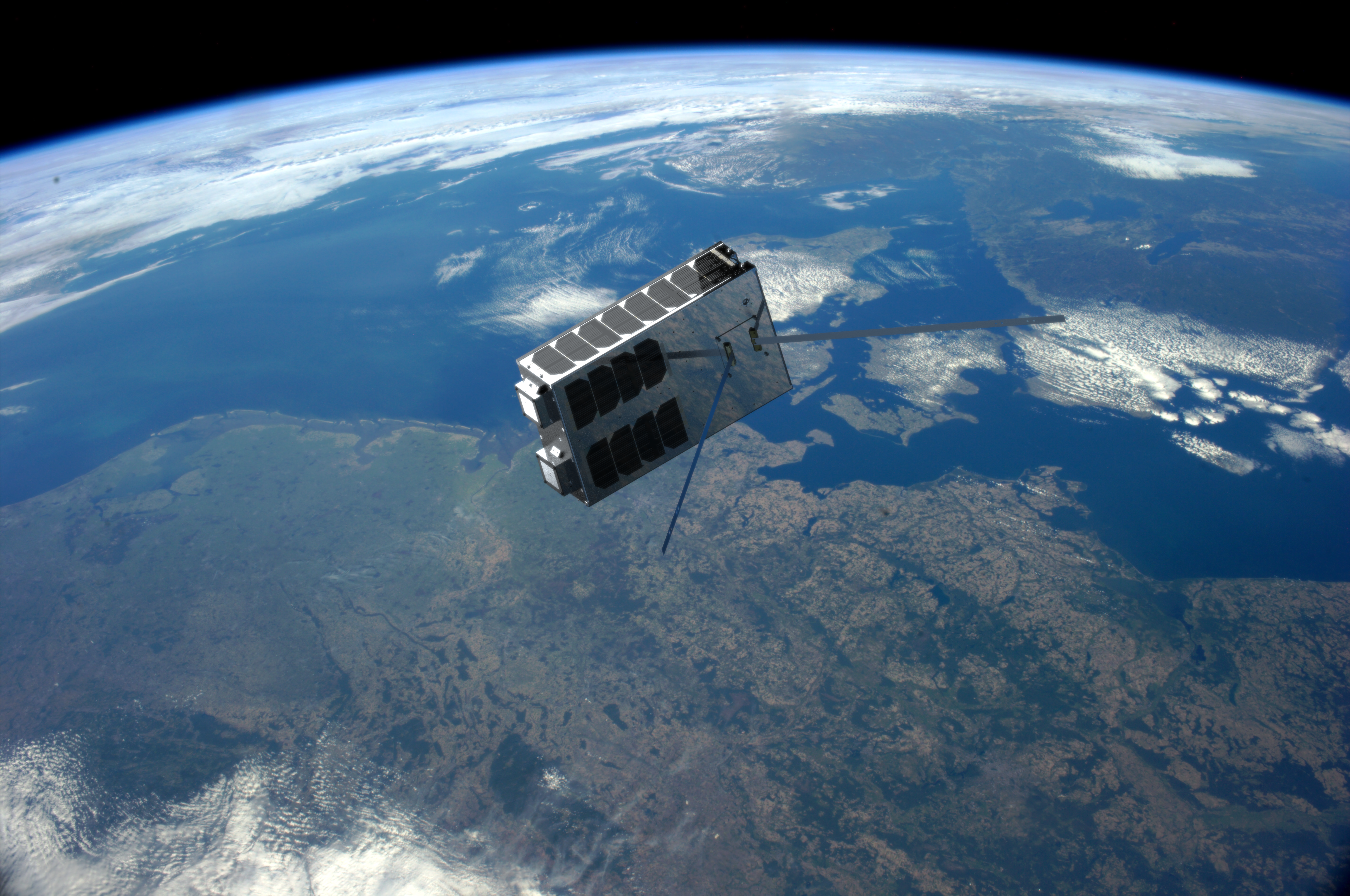The Norwegian Coastal Administration has been building Norway's capacity for maritime surveillance since 2010. The information we are now able to collect is also shared with other public authorities responsible for maritime affairs.
"The societal benefit we gain from collecting AIS information from satellites is significant. It is therefore important that we ensure the maintenance of this capability," says Coastal Director Einar Vik Arset.
"AISsat-4 will be a valuable addition at a time when several of our operational satellites are nearing the end of their expected lifespan.
From five to two within the year
Today, the Norwegian Coastal Administration and the Norwegian Space Centre have five maritime surveillance satellites: NorSat-1, -2, -3, -4, and NorSat-TD. NorSat-1 and -2 are now eight years old and are expected to go out of operation by 2025. The same applies to NorSat-TD, which was damaged in solar storms in 2024 and is therefore expected to go out of operation already in 2025. This means that the number of satellites is expected to drop to just two by 2025. We have to go back to 2017 to find such a low number of satellites in operation."

AISSat-4 is smaller than the other Norwegian satellites, with an AIS receiver as its only payload. It can record at least 1.5 million unique AIS signals per day in high resolution over heavily trafficked waters. The cost will be around 15 million NOK, which is at the same price level as AIS-sat-2, which was launched in 2014. It will most likely be ready for launch by February 2026.
Well-established cooperation
Building on well-established cooperation, AISSat-4 will be the Norwegian satellite built in the shortest time. "With experience gained from the launch of the first AIS satellite in 2010, this latest order is more of a standard product than a research project," says Sivert Bakken, project manager for AISSat-4 at the Norwegian Space Centre. "Not least, both the services and infrastructure needed to receive, share, and use the data from AISSat-4 have been well-tested over several years."
The bid from the Norwegian Space Centre to build AISSat-4 was won by Canadian Space Flight Laboratories (SFL), which has built several of the other Norwegian national satellites.
"We have long collaborated with SFL and feel confident that the development of AISSat-4 will proceed as planned. It is also important that we use a well-proven AIS receiver on this new satellite, developed and produced by Norwegian industry," says Christian Hanssen-Hauglie, CEO of the Norwegian Space Centre.

Great societal benefit
Data from the new satellite will be downloaded by ground stations operated by the Norwegian Coastal Administration and the Norwegian Space Centre in Vardø and Tromsø. Data from AISSat-4 will go via these ground stations directly to the Norwegian Coastal Administration. Several other agencies and organizations, such as the Blue Justice Ocean Surveillance Program, receive AIS data from the Norwegian Coastal Administration to monitor maritime areas; among other things, to prevent illegal fishing. Read more about the international focus on combating fisheries crime.
Facts: AISSat-4
Owner: Norwegian Coastal Administration
Size: 10 x 20 x 30 centimeters and weighs just over 6 kg
Payload: AIS receiver of type ASR C-50 from Kongsberg Discovery, capable of recording at least 1.5 million unique AIS signals per day in high resolution over heavily trafficked waters.
Price: 15 million NOK
Built by: Canadian Space Flight Laboratories (SFL)
Orbital control by: Statsat
Coordinator for construction/formal operator: Norwegian Space Centre

